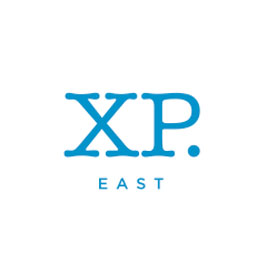
I’ve really struggled deciding what makes the cut in terms of our crew blog after a week of highlights during crew and in session. After all the banter between Callum and Torran, I’d be doing them a disservice not to congratulate Torran and his team for winning the league! I was also delighted to hear that Lexi had achieved her goal of performing her back flip during her floor routine! I love starting the week celebrating our crew’s successes, and luckily for me, there have been many causes for celebration this week!

A definite highlight was the wonderful presentation of learning from C25’s STEAM expedition. I was blown away by my crew member’s hard work, and how they articulated their learning to me as I passed through the lab. It is wonderful to see them stepping up to the challenge, answering tricky questions and doing so in a really mature and professional manner.
This week, we have been analyzing the data of our subject grades and HOWLs. I was worried that the last data set for my crew had been so high we would struggle to top it, but it seems that we haven’t lost momentum. We are top of the leaderboard across all year groups for the be kind and work hard HOWLS, which is wonderful news. For get smart however, we’re in 3rd place (bearing in mind that we have had to compare digits in the hundredths in order for us to calculate the year 7 average)! It really got me thinking about how we can support one another in getting smarter.


Those three criteria have been the focus for our learning, and will be until the next data drop. I decided to set a little extra extended study last weekend, to get my crew to go above and beyond, and do some ‘explore further’ work that was related to their expedition but not something they had necessarily learned about in lesson, as a way of my crew taking responsibility for their learning. I encouraged them to use their expedition sites that have been set up by their teachers to support them with this. They were then asked to feedback to us in the form of a mini masterclass. Here’s some of their findings:

Lexi, Charlotte, Abi, Callum and Sami did some research into slavery in America, looking into Harriet Jacob’s account of her experience as a slave in the 1800s and famous slave traders. It was fascinating to hear her account and how she’d escaped the deep south and wrote a book detailing her mistreatment. Alice expanded our spanish vocabulary with some mythical creatures she had been researching that weekend – I am determined to somehow drop ‘unicorn/llama’ into conversation on my next trip to Spain!
Reece took us through the specialised cells in the body, and ran an activity where each pair had to identify and act as those cells in accordance to their roles. Lewis and Dylan had prepared fantastic slides on the anatomy of the digestive system and the role various organs had to play in processing food. Torran did a brilliant interactive maths recap of conversion, which included mini-whiteboard questions, and Dylan even printed a questionnaire for us to complete at the end of his session!
I’m sending my crew home with another small and optional piece of extended learning tonight, to try a little digital detoxing this weekend. I want them to try and spend a little bit of additional time that they may spend on devices doing some reading, some ‘explore further’ work, cooking or getting out now the weather is nicer! We’re going to debrief on Monday to see how it goes, myself included!




